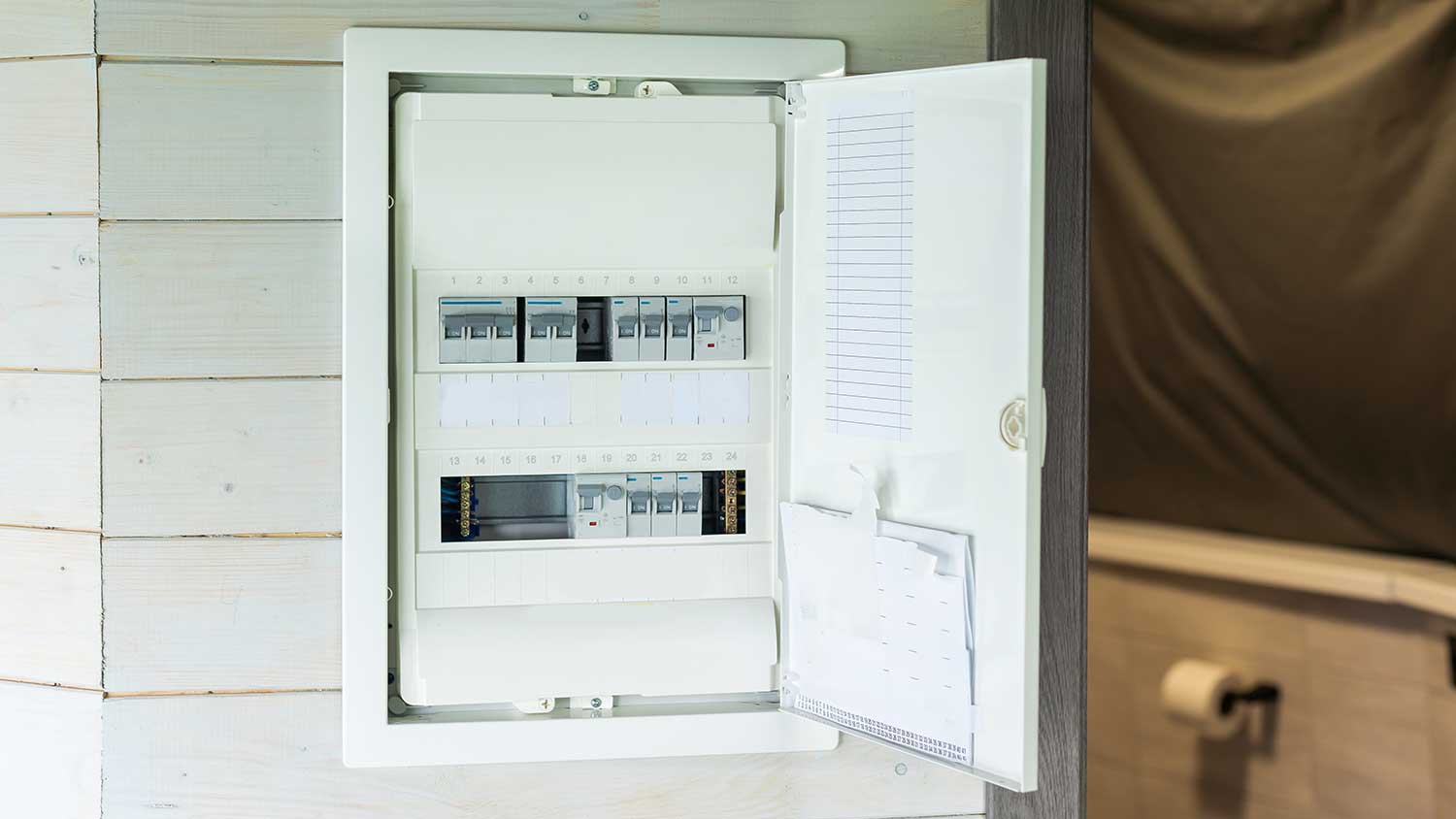
The cost to move an electric meter depends on how far you’re moving it, whether it needs replacing, and the cost of labor near you.
Don’t blow a fuse when your breaker keeps tripping—there might be a simple solution


Circuit breakers prevent fires by cutting the power if there’s an unusual current passing through electrical wires.
Your breaker will keep tripping if you overload the circuit, the aging system is faulty, or there is a short circuit.
A process of elimination helps you work out if it is a simple circuit overload.
Unless you have prior electrical experience, call the pros if you need to repair a circuit breaker or replace the system.
You're percolating that all-important coffee as part of a busy morning routine when the electricity suddenly cuts out. No problem, right? All you have to do is reset the circuit breaker by flipping a switch. It becomes a headache when you keep wrangling with the reset, and the power just won’t stay on.
Before making a frantic call to a nearby electrician (and heading out to a coffee shop for your caffeine fix), it pays to troubleshoot why your breaker switch won’t stay on and when you might be able to score a risk-free return to power yourself.
When taking on this project, expect questions only a pro can answer. With our network of local pros, you'll get the job done and your questions answered—without the hassle and stress of doing it yourself.

You might be pretty irritated if your power keeps tripping, but it’s usually your circuit breaker box's way of telling you your electrical wiring is wonky. Here are some common reasons your breaker switch won’t stay on.
A breaker that won’t stay put may indicate wiring issues within your electrical system. To troubleshoot, flip the switch to the off position, wait one minute, then flip it to the on position.
If the breaker stays in the on position, your circuit breaker is reset and should restore power shortly. If not, you likely have a more serious wiring problem that will require hiring a professional electrician for an inspection.
If you’re lucky, your breaker switch won’t stay on simply because you haven't reset it properly. If the switch is stiff, turn it to the OFF position before strong-arming it fully back to the ON position.
And, when you're scrambling to get the power back on, it’s surprising how easy it is to flip the wrong breaker switch.

One of the most common reasons for continual breaker trips is that too many high-power appliances are running through the circuit for it to handle at once. So, if your power cuts while you are ironing and your partner is vacuuming, the same thing will happen again if you go straight back to these chores after you’ve flipped the breaker switch back on. Either avoid using these high-powered appliances together, or, if that’s not convenient, consider upgrading your electrics. The cost to install a dedicated circuit for heavy-duty appliances averages around $700.
Breakers have a handy safety feature designed to detect when the electrical current flows down the wrong path. This misdirection triggers the breaker switch to trip.
Maybe you accidentally hammered into wires, or rats have been nibbling on them. A faulty appliance, switch, or outlet can also trigger a short circuit. It can be tricky to track down the cause of a short circuit. A certified electrician can help accurately identify the appliance or other issue causing the problem, locate the short circuit in the wiring system, and safely perform any wiring repairs.
Sometimes the breaker is bad, and unless you repair it, you won’t be able to stop the switch from constantly flipping to that OFF position. A breaker going bad is common in old panels or when the system is constantly overloading. It’s best to call out a local electrician to carry out breaker repairs and replacements.
Working out what’s going on with your breaker switch and if you need expert assistance requires a bit of detective work.
First, take stock of what you were doing when the power cut out. If you had many appliances running, it could be a circuit overload. Switch off all your appliances before resetting the breaker again. To prevent future overloading hassles, avoid running multiple high-powered appliances that will likely trip circuit breakers (like fans, irons, or hairdryers) at the same time.
If you suspect a particular appliance is faulty, turn on the appliances one at a time to work out which one is the culprit. When you switch it on, the circuit breaker will trip again.
If you suspect you're dealing with a short circuit or faulty breaker, it’s probably time to call an electrician. If you have prior experience wiring your home, replacing a circuit breaker yourself is doable, but making mistakes or misdiagnosing the problem can be costly and, more importantly, dangerous.
Telltale signs there’s something more serious going on include:
Burning smells
Sparks
Banging or zooming noises
Brown or black burn scorch marks near an outlet
Replacing a circuit breaker switch costs between $100 and $200, including parts and labor. The average cost to replace the entire electrical panel, if it is old and you have to handle regular resets, is between $500 and $1,000.

You might not give much thought to the unremarkable-looking panel in your garage, basement, or utility closet. But understanding what a circuit breaker box is will help you realize why you’ll be glad your electricity trips at inopportune moments.
Circuit breakers protect the wires supplying power to your home's appliances, lighting outlets, and other electrical items. If the current passing through the wires is moving too quickly or is higher than it should be, the breaker jumps into action and trips the switch from ON to OFF. This process stops the electrical flow in that area and prevents a fire hazard.
From average costs to expert advice, get all the answers you need to get your job done.

The cost to move an electric meter depends on how far you’re moving it, whether it needs replacing, and the cost of labor near you.

A GFCI outlet can keep your family safe and is relatively inexpensive to install. Learn how much replacing GFCI outlets will cost you, and what factors into those costs.

Nothing’s more luxurious than your own hot tub after a long day. Maximize your enjoyment by hiring an electrician to wire your hot tub properly.

Learn how to wire an outlet switch combo receptacle in various ways to adapt an existing wired location for several applications.

Before hiring a pro, you may be able to fix a short circuit on your own. Learn how to fix a short circuit with our step-by-step DIY guide.

Wondering who to hire for electrical work on home additions? Compare electricians and electrical contractors to see how pros get the job done.